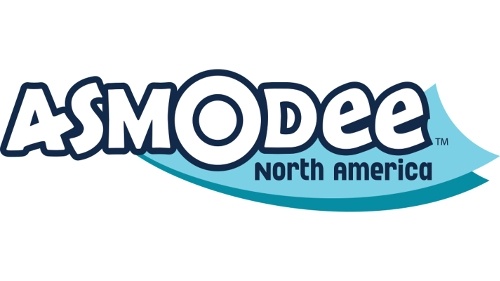Last week, Asmodee announced that in a post-merger consolidation, business operations of Asmodee, Fantasy Flight Games (FFG) and Days of Wonder (DOW) will be consolidated into Asmodee North America (see "Asmodee, Fantasy Flight, Days of Wonder Consolidate"), and that terms of sale to the trade will be changing. ICv2 caught up with new Asmodee NA CEO Christian Petersen to learn more about the specifics of the deal. In Part 2, we discuss the company’s new terms and how they differ by channel, MAP, and online retailing. In Part 1, we discusded branding, marketing investments, organized play, stocking policies, and selling direct to retailers.
You’ve outlined new sales terms starting in April of next year. What was behind these changes? What does it mean when you say the new "sales terms provided to [specialty brick and mortar] retailers, relative to other channels, are positively reflective of the value they add to our distribution chain?" How are the new sales terms reflective of the additional value vs. other channels--price, other?
This is a key question. It is also a complex one. I will assume some readers are not well-versed in workings of the present games distribution mechanisms, so, I’ll "start from the top" in outlining what our new sales policies are about.
When we, or one of our publishing partners, start development of a game product, we do so with a conviction that the product will have a certain value to the gamer, the consumer. On the basis of this expected value, we invest in design, creative inputs, safety testing, manufacturing, marketing, licensing, and the many other aspects of successfully getting a game to market.
As part of that process, we engage in relationships with distribution and retail businesses that provide services in facilitating our road-to-market for the product, i.e. getting the product to the consumer. These parties take inventory risk, assist in communicating product benefits, and facilitate getting the physical product transacted to the consumer.
In return for services provided, we pay distributors and retailers in the form of trade discounts, this is their incentive to invest, and hopefully allows them to achieve success in their business.
I believe business partners who provide services and investment that we value, relative to others who do not, should receive proportional compensation from us so that they may succeed and continue in such activities.
In comparison to, for example, the online channel of sales, most specialty retailers make investments in areas we consider critical to the health and growth of the gaming hobby, such as a local presence, instant product availability, new customer generation, and crucially, in-store gaming events, demonstrations, tournaments, and organized play facilitation.
However, these unique services cost money.
Asmodee North America wants to fairly pay for these services, that is--issue a better trade discount--to those retailers who invest in such practices, as opposed to those retailers that do not.
In the present "one-size-fits-all system" of providing discounts to the hobby games market, we simply pay everyone for the services expected, without asking for representation as to such services actually being done. This has caused an increasingly dangerous distortion. Retailers that do not make those investments, especially online retailers, have increasingly leveraged this publisher-granted benefit into price reductions, undermining not only the core value proposition of the products, but directly harming those retailers providing the services for which the discounts partly were intended. Increasingly over the last 10 years, this has resulted in the publisher not receiving the expected services it is paying for by the discounts extended, and has created an unfair situation for the retailers that are making those investments.
So, how to fix this problem? After extensive deliberation, we determined the only practical approach is to cleanly identify which retail operations are dedicated to a certain channel of product availability and services. Once identified, we can pay them according to the services they give us in bringing the product to market.
In summary, for sound and fair reasons, we want to grant additional discounts to the brick-and-mortar specialty retailer for the unique work they provide, while not granting those discounts to the online specialty retailer given the fact they are not providing the same services or making the same investment.
What do you say to those that argue that online retail is a more efficient channel, one helped by technology that is able to bring product to consumers in a more price-effective manner?
Online retail is an amazing and valuable road to market. We recognize that and as a publisher we certainly want to keep this channel viable. However, it is primarily a mechanism to more efficiently effect transaction and delivery for an existing demand. The stage of transaction and delivery is only one part of the necessary market functions to have a successful sale to a happy consumer. Another function is communication of availability and benefit (fancy words for marketing) and the most important, and most difficult, function is the creation of demand. Without those others, the function of transaction and delivery will have no reason to exist.
At its core, the value of physical gaming products stems from the medium of shared play between people in the same location. A game is only as valuable as the customer’s ability to play it. Our products, in most cases, require players to connect with other people willing to share a gaming experience.
The most significant obstacle in the growth and perceived value of the gaming business is the need for players to find other players, and for new players to enter the hobby. I estimate that the hobby loses between 10 - 20% of its players every year, so the creation of new players into the hobby is vital for every participant to have a thriving marketplace and have exciting new products developed.
In this hectic digital age, it is evident, especially over the last 10 years, that audiences of niche markets have a growing need to connect with people that share the same interest. Some of these connections happen online (in the gaming niche via specialty game sites), but the phenomenon is also expressed in the meteoric rise in attendance at shows and conventions (such as Gen Con, San Diego Comic-Con, and others). Most significant, in our mind, is the rapidly growing game gatherings and events in thousands of independent hobby game stores worldwide every day.
Whether it be cooking, crafting, games, or other activities, we believe the next evolution in how people interact with each other in niche marketplaces to be increasing engagement with physical and local "third places" where people celebrate their interests, discover new products, and find new friends or participants. Related to games, these are services I feel that publishers must support in order to incubate demand for their products.
For a market to be efficient, it must internalize its true cost and be sustainable. In the case of the current hobby market, one channel (online) is relying significantly on the cost and investments of another channel (specialty retail). Our new sales policy seeks to reconcile where Asmodee North America is willing to pay (in the form of the wholesale discounts we extend) for the services we need for the creation of demand.
Are you going to institute any MAP ("Minimum Advertised Price") policies for online retailers? If so, what will the minimum price be?
No, for a number of reasons. One is the difficulty in enforcing MAP on the broad and mass markets. We would not want one market to be MAP-enforced and not another. Secondly and related to the first point, we’re advised that a number of state laws conflict with MAP, which could cause leaks in any MAP policy. There are also some practical considerations: what if a retailer wants to have temporary sale? What if a product doesn’t work and a retailer needs to clear the inventory? These are sensible practices that become controversial under MAP.
As mentioned earlier, our approach with these new sales policies is instead to give discount according to defined channel, meaning relative to the services and the value-add represented by the activity of the retailer. We see this as the best approach at this time. If necessary, we will consider a MAP policy in the future.
Does the Specialty Retail Policy cover specialty retail chains (e.g., Barnes & Noble)? If not, how do the Specialty Retail Policy terms differ from those given to specialty retail chains to reflect the additional value provided by stores that do OP, demos, and other services?
Broad and mass merchants, being Barnes and Noble, Target, Amazon, etc., are important players and obviously cannot be ignored as important outlets for our products. We categorize these in different channels, with different scale and cost of operations than that of specialty retail. Our job is to make sure that we can facilitate success in these markets that does not come at the expense of the success of brick and mortar specialty retailers or online specialty retailers.
Will the five distributors be selling to online retailers, or will the "appointed distributors acting under Asmodee North America’s related policy" be a different roster?
Online Specialty retailers will be required to deal directly with Asmodee North America, and will be subject to sales policies governing that channel. On a case-by-case basis, we may allow a distributor to service that relationship on our behalf and under the related policy.
Do sales to the military while deployed or college students while away at school (or home for the summer) constitute mail order under the terms, or only if it’s advertised?
Per the brick-and-mortar specialty retail policy, sales that are transacted outside the physical store are prohibited. We don’t see this as significant impediment to the consumer, as these examples are clearly best serviced by our authorized online sellers.
That said, our sales policies allow us to make exceptions as we deem sensible. Exceptions will likely apply to services provided to the military, educational, or charitable institutions.
What impact do you expect this change in policies to have on the online marketplace for products from the Asmodee companies?
We believe that online sales is a viable and important marketplace, and that some consumers either prefer to buy their games online, or do not have access to a high-quality brick-and-mortar gaming retail store. As a publisher, we obviously still want to serve those consumers. We expect to authorize a number of excellent online specialty dealers, and would expect our products to be easily found online.
It is reasonable to assume that product will still be discounted online; this makes sense as that channel has a number of disadvantages (such as product receipt delay, shipping expenses, etc.). However, given the fact that our trade discounts to the online channel have been aligned with the services they provide, it is likely that online discounts will not be as disproportional as they have been in the past relative to pricing (which includes the volume or loyalty discounts) offered by many brick-and-mortar retailers.
Do you expect the number of online retailers to decline?
Yes.
Note: Petersen declined to answer several questions related to the company’s reorganization that touched on human resources issues. We expect to revisit those questions in January to clarify some of the changes being made.
Click here to go back to Part 1.

The New Company's Terms, MAP, and Online Retailing
Posted by ICv2 on December 29, 2015 @ 4:10 am CT



